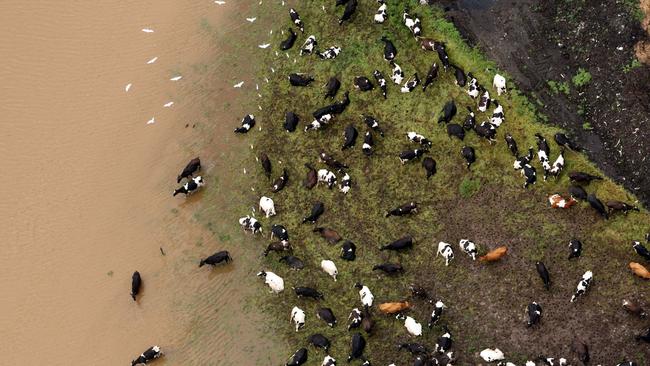AAco ‘unprepared’ for Gulf flood
The Gulf flood that impacted northern Queensland earlier this year was an unprecedented disaster in the region.

The Gulf flood that swamped northern Queensland earlier this year spanned 80km at its widest point and affected an area visible from space, Australian Agricultural Co boss Hugh Killen has told investors as he highlighted the unprecedented scale and devastation of the weather event.
Mr Killen, speaking to shareholders at the AACo’s annual meeting yesterday, said its affected properties were in the middle of the flood.
He said the speed and scale of the inundation meant there was little that could be done.
“In the Gulf we saw 500mm of rain in a few days. Some have estimated this was a once in a century event,” he said.
“On the ground we saw 800,000ha impacted across four of our properties.”
Mr Killen said while the company prepared for floods, it was not prepared for an event of that scale.
The country’s largest beef producer lost 43,000 head of cattle, including animals lost in the flood itself and others lost to wind and rain exposure.
Seasonal events had a $107 million impact on AACo in fiscal 2019, with a $47m loss due to the Gulf flood and $60m in additional drought-related costs, mainly for feed and transport.
Mr Killen said the company was examining how it handled stock and feed in high-risk areas and was reviewing its station business model.
He also outlined that the rebuild was under way, with costs expected to be $6m to $8m.
Mr Killen said at the annual meeting that it wasn’t just the aftermath of the flood that the company was dealing with.
He said the drier conditions had a noticeable impact on AACo’s costs and bottom line over the past 12 months.
“We expect these conditions to create continued upward pressure on station operating expenses, feed and transport costs, and we would expect to see continued strong cattle sales across the industry,” he said.
He also said the company wanted to continue to benefit from what was happening globally and focus on changes in consumer trends over the coming 12 months.
“We know these trends include a focus on sustainability and animal welfare,” he said.
Chairman Donald McGauchie pointed to the company’s decision to release its first sustainability policy earlier this year.
He said it was a commitment to lead the industry in taking its rightful place in the climate- change debate. “We do this because it is the right thing to do, and because our people care passionately about leaving something more than they found,” he said.
“We do this because we have done it for almost 200 years, and we do this because it is central to the story that our customers can be proud of.”



To join the conversation, please log in. Don't have an account? Register
Join the conversation, you are commenting as Logout